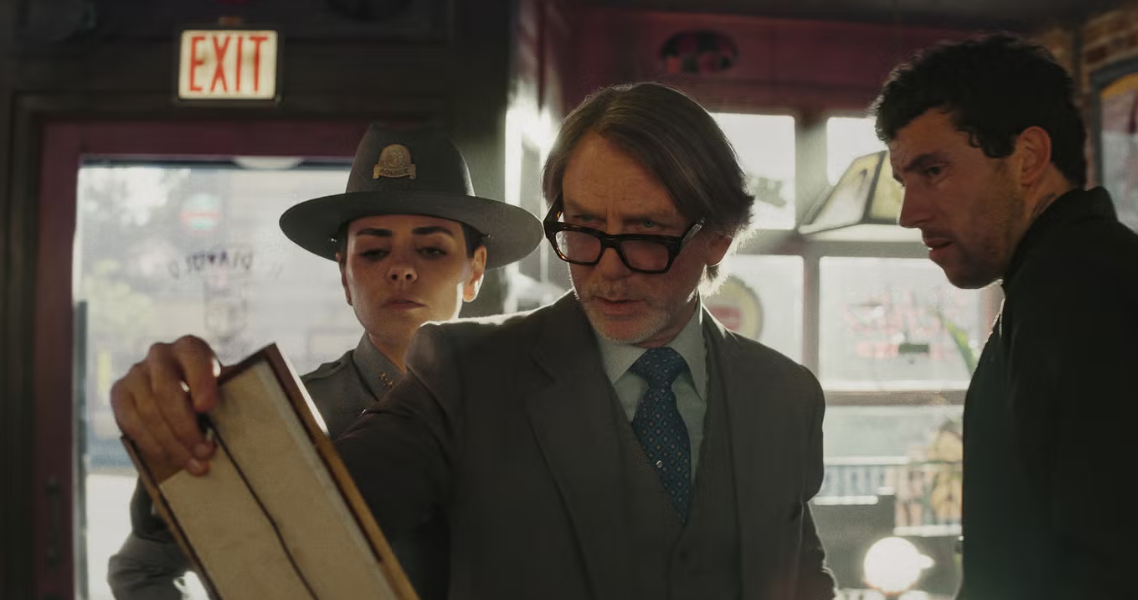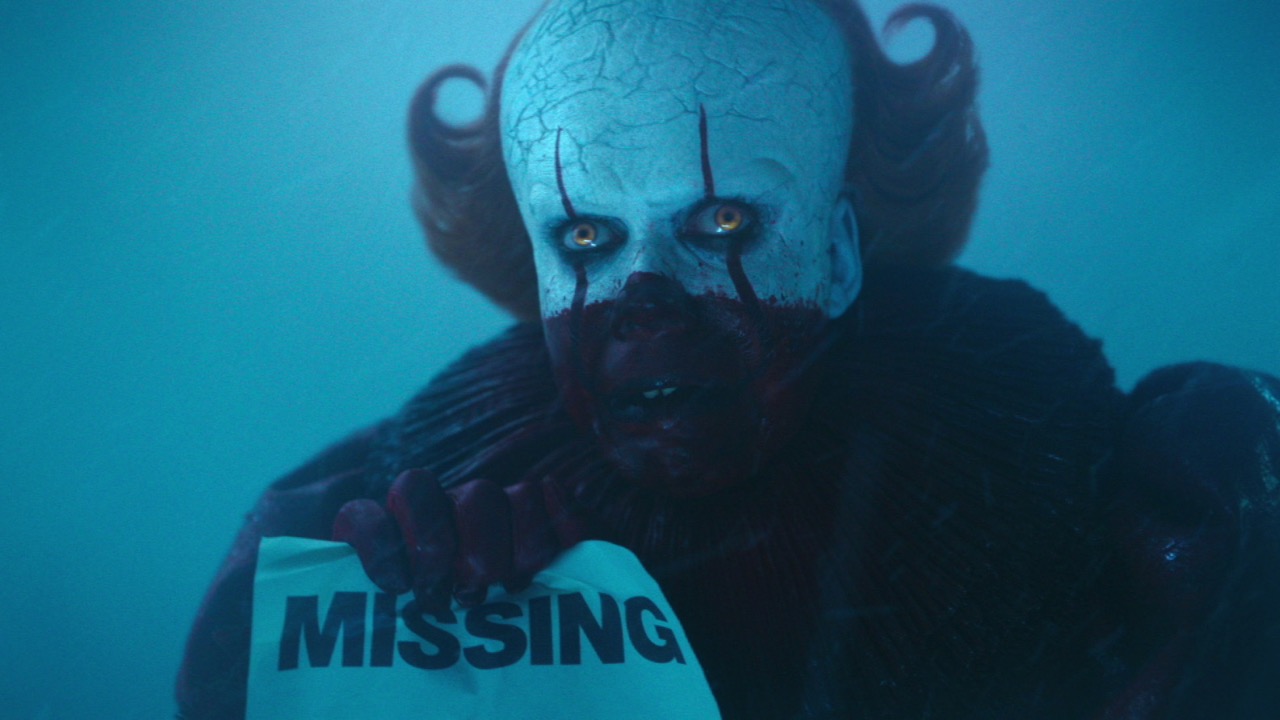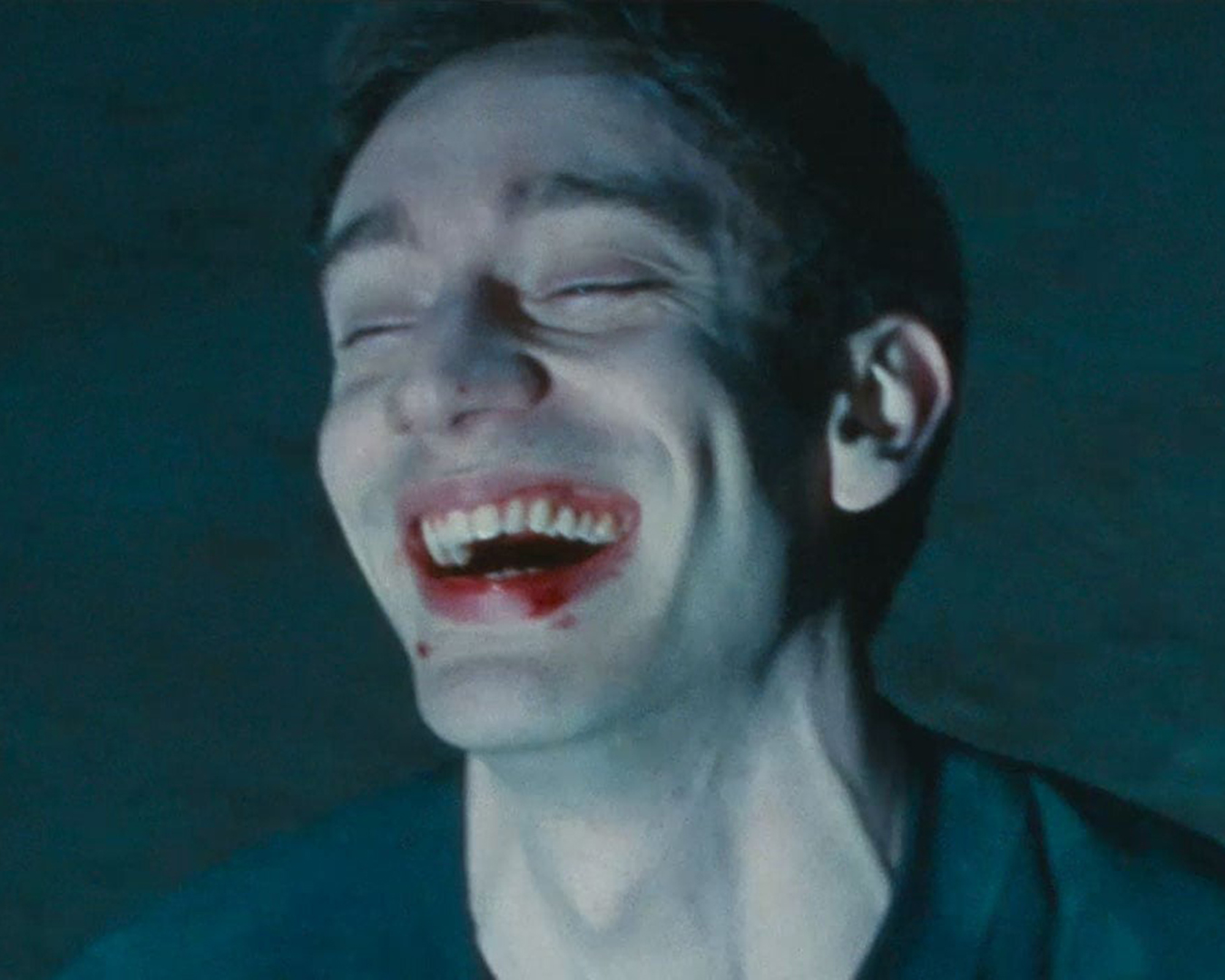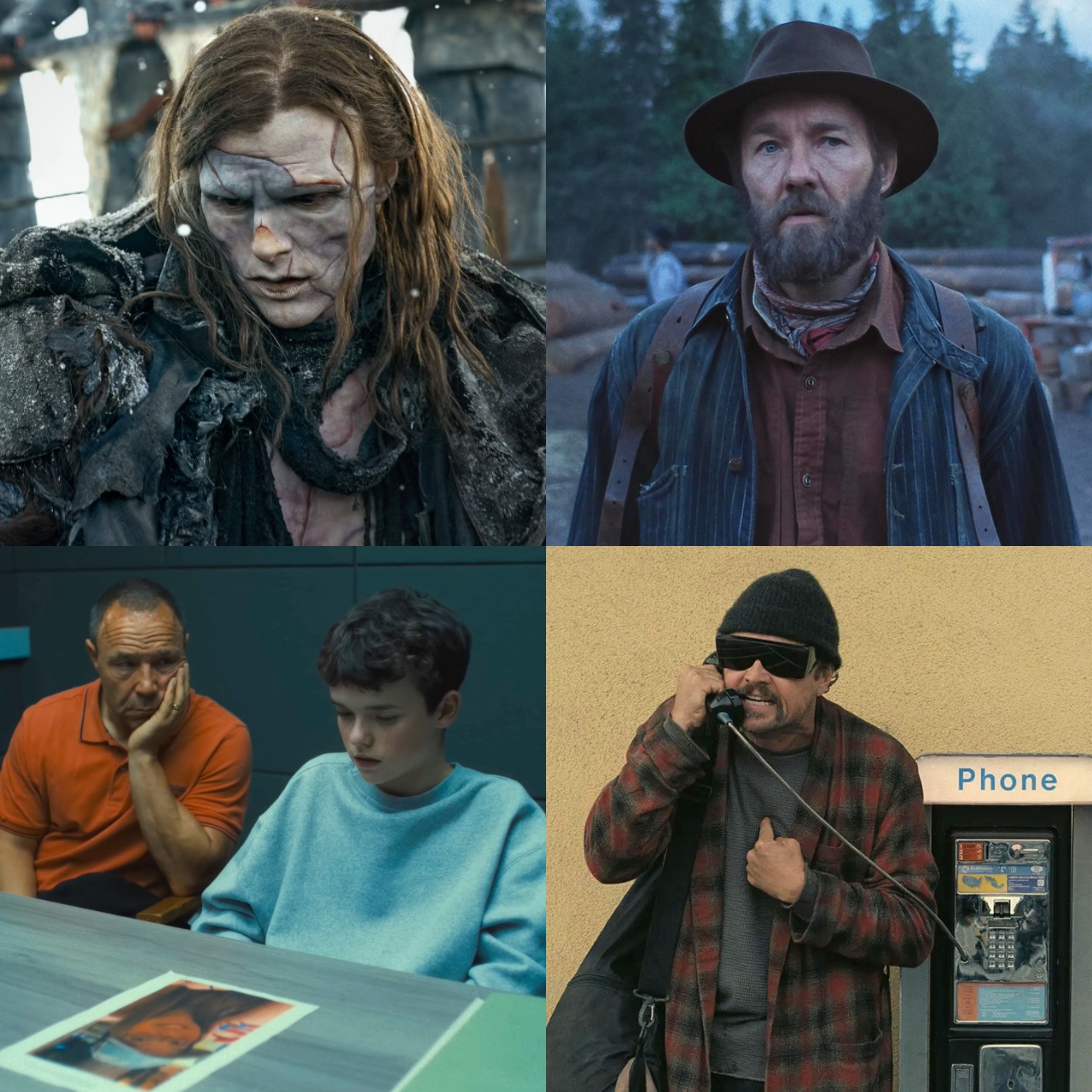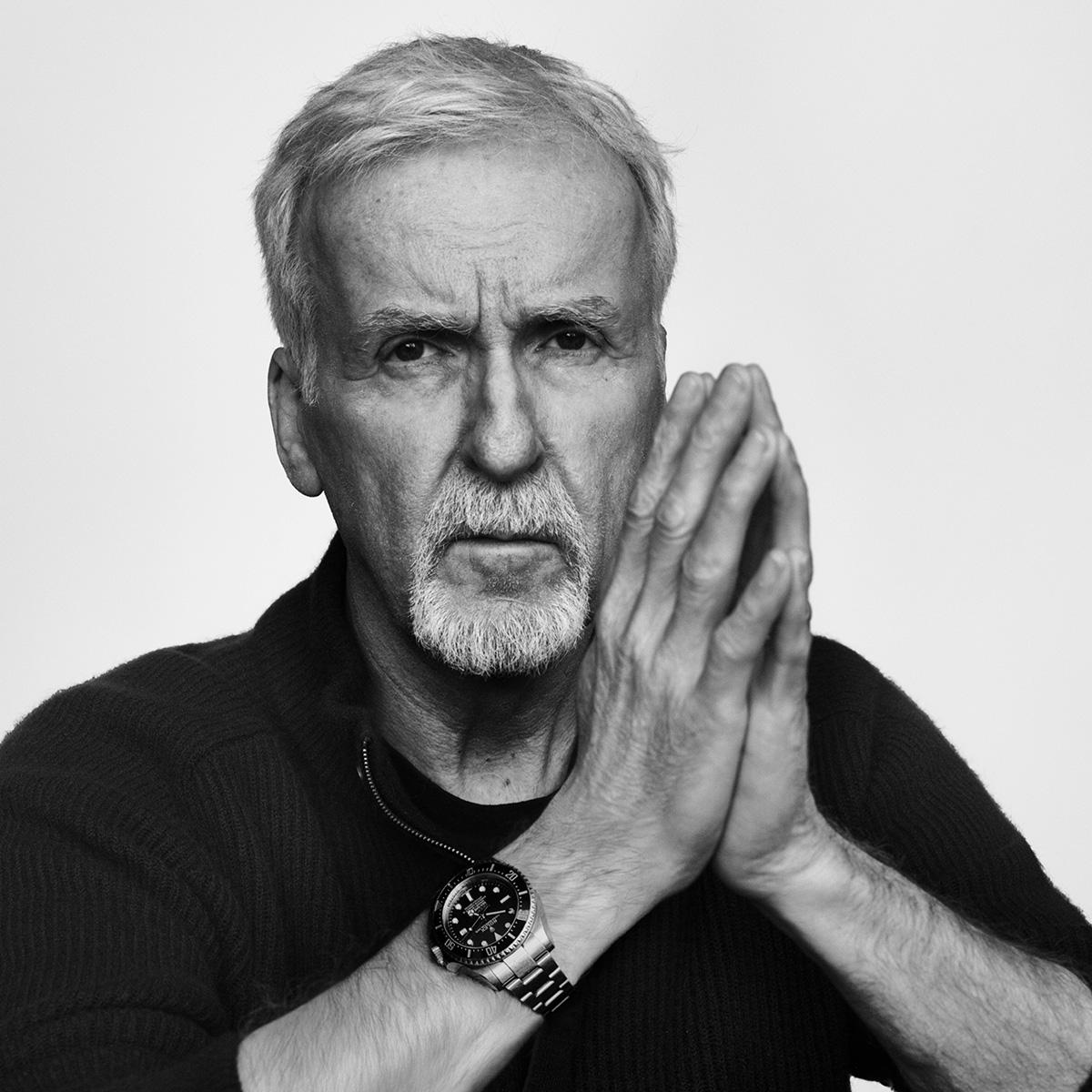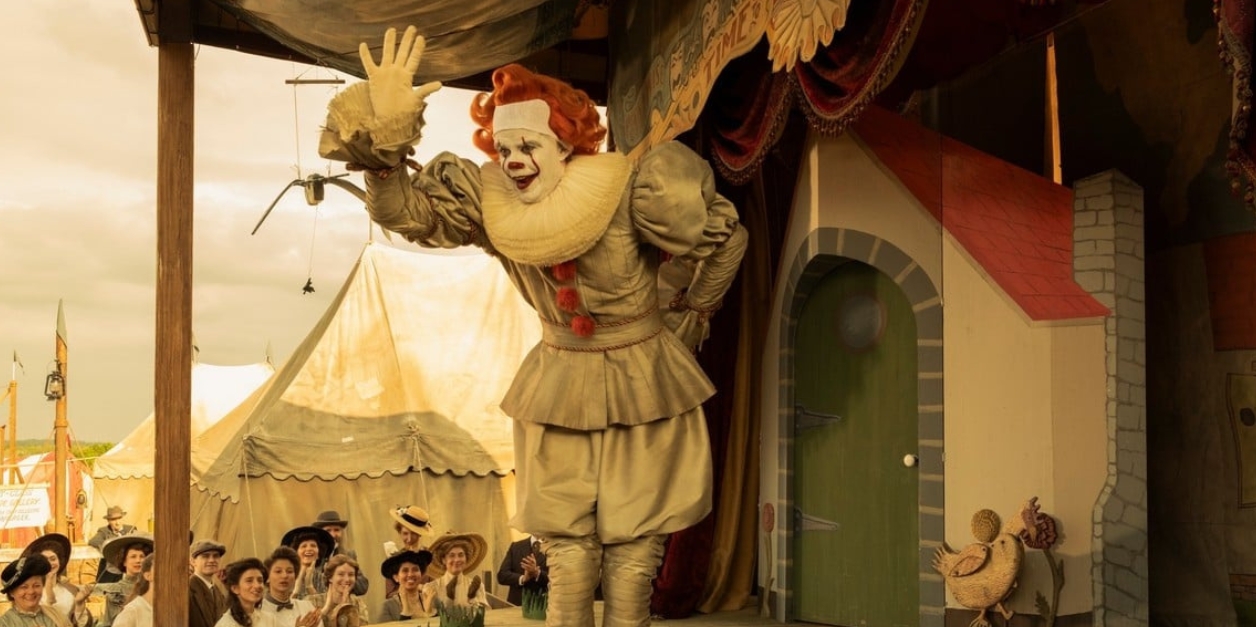The biggest plot twists in movie history, ranked
An unexpected plot development in the recently released Gladiator II got us thinking about some other famous movie twists, from a paternal confession in Star Wars to a supernatural revelation in The Sixth Sense. Here, we rank them from 10-1
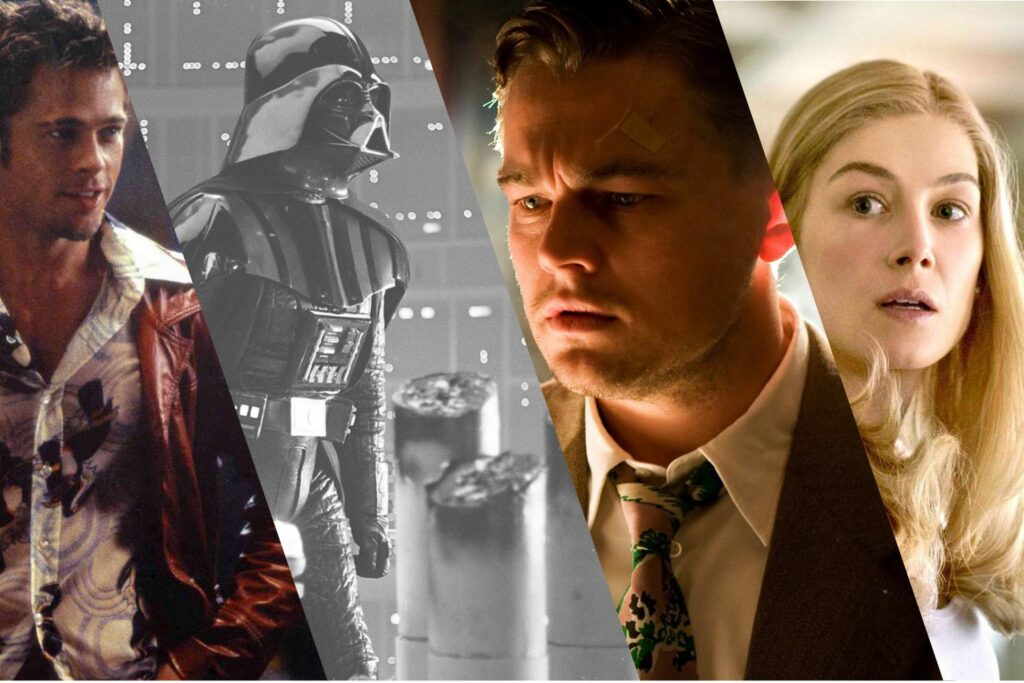
BEFORE WE BEGIN, let’s get something out of the way. There is a colossal spoiler warning attached to this article. If you haven’t already seen them, every single film on this list is about to be spoiled for you. If you don’t want that to happen, we suggest you stop reading now. If you’re willing to take the risk, we have broken each entry into spoiler and spoiler-free zones. Still, don’t let those impatient eyes wander. You have been warned.
Now that we’ve got that out of the way, we can begin. A good plot twist can often be the most memorable aspect of a film, turning it into a piece of mass-cultural canon that is still referenced and quoted decades after a film’s theatrical run. But of all the plot twists, which is the most memorable, impactful and twisty-est?
That’s for us to decide as we rank the biggest plot twists of all time. For the sake of reducing our scope, we’re not including whodunnits where the twist is simply that one of the potential murderers is the murderer, because those are hardly even twists. The whole point of a twist is that the audience doesn’t see it coming, and if you’re expecting a twist, it’s not a twist. Now, let’s get into the rankings.
10. The Prestige
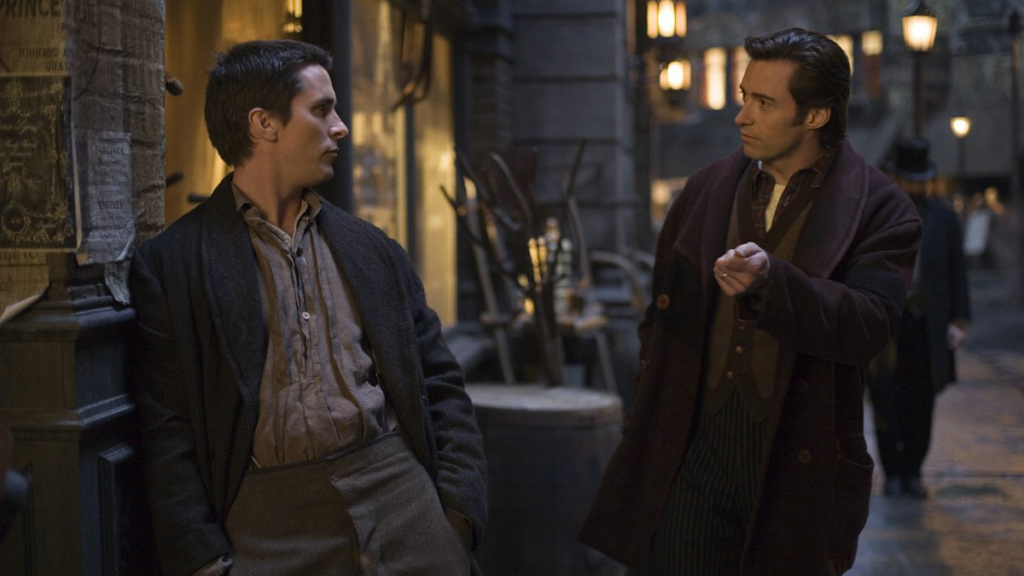
Spoiler-free zone:
It almost seems like when he was writing The Prestige, Christopher Nolan specifically set out to squeeze in as many plot twists as he could. Set in turn of the century London, The Prestige centres on two rival magicians, Robert Angier and Alfred Borden (played by Hugh Jackman and Christian Bale respectively), whose feud ultimately leads to death, imprisonment and the belief by each magician that they had gotten the best of the other right up until the very end.
Spoiler zone:
The Prestige features twists on twists (on twists). In the film’s opening scene we see Borden supposedly kill Angier, resulting in the former being arrested and sentenced to death. In the film’s closing stages, Angier reveals himself to be alive, but Borden is still hanged for his murder. To pull off this trick, Angier had cloned himself and had been repeatedly killing his clones in order to achieve his most famous stage trick. But then Angier is shot dead by . . . Borden, who reveals that the man who Angier had hanged was actually his twin brother, who also helped him pull off his own seemingly impossible stage tricks. This is the kind of film that offers a completely different viewing experience the second time you watch it.
9. Oldboy
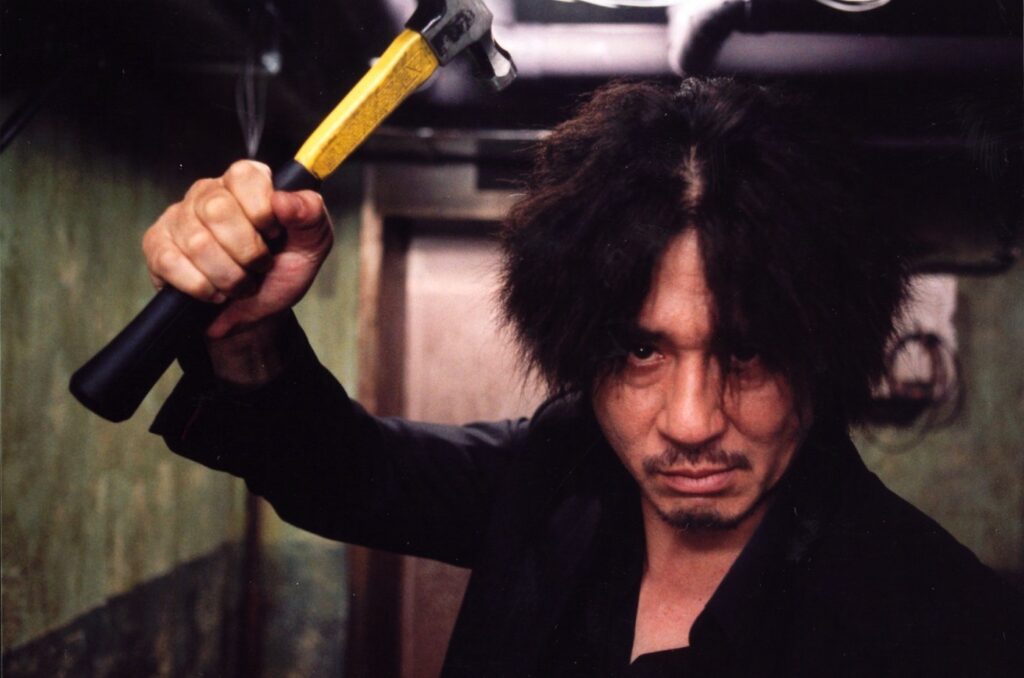
Spoiler-free zone:
Chan-wook’s Oldboy helped put Korean cinema on the map with an unforgettable and downright sickening ending. After being held captive for years for a reason unbeknownst to him, Dae-Su spends most of the film hunting down his captor while also forming a relationship with the much younger Mi-Do, who he meets in a sushi bar. During Oldboy’s climax, all is revealed to Dae-Su in a gut-turning revelation.
Spoiler zone:
That revelation is, of course, that Mi-Do is not just some compassionate sushi chef, but is actually Dae-Su’s grown-up daughter – yuck. It is also revealed that during Dae-Su’s entire revenge arc he was merely being manipulated by the film’s villain, who was using Dae-Su to justify his own incestuous relationship from decades earlier.
8. American Psycho

Spoiler-free zone:
Yuppie finance bro by day and serial killer by night, Christian Bale’s Patrick Bateman roams New York City murdering people for perceived slights in this critique of the hyper-capitalist Wall Street mentality of the ‘80s. Bateman gradually loses his grip on reality throughout the film, but how much of what we see is real, and how much is the psycho’s own twisted fantasy?
Spoiler zone:
American Psycho’s conclusion would suggest that none of it was real. Midway through the film, Bateman confesses his crimes to a lawyer, but when he later confronts the lawyer again, he apparently has no idea what Bateman’s going on about. The inference here is that all of Bateman’s murders didn’t actually happen, and that they were nothing but a figment of his imagination.
7. Donnie Darko
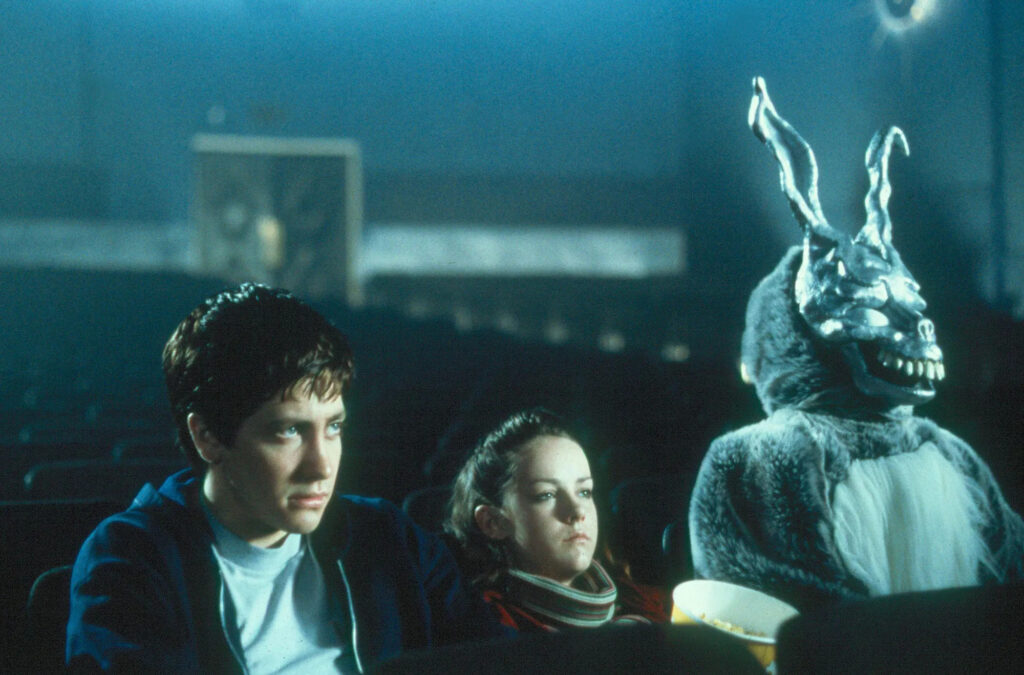
Spoiler-free zone:
Watching Donnie Darko is a dream-like experience, which is intentional. Throughout the film, which focuses on an emotionally troubled teenager who escapes being crushed by a jet engine by sleepwalking, the audience is led to believe that something is amiss. Donnie has visions of Frank, a mysterious figure in a rabbit costume who repeatedly tells him that the world’s end is imminent. Is this all a dream? Has Donnie slipped into an alternate reality? Or are we simply getting an insight into the topsy turvy nature of being an isolated teenager?
Spoiler zone:
The answer is B: an alternate reality. After making a few irreparable decisions towards the end of the film, Donnie watches a vortex open in the sky. A plane gets caught in the vortex’s wake, which tears off and absorbs an engine. Then, we’re transported back 28 days earlier to our actual reality, where Donnie wakes up in his bedroom and smiles before being crushed by the engine, revealing that the events of the film had actually been taking place in an alternate reality. The director’s cut adds another layer of mystique, leaving the film more open to fan theories.
6. Gone Girl
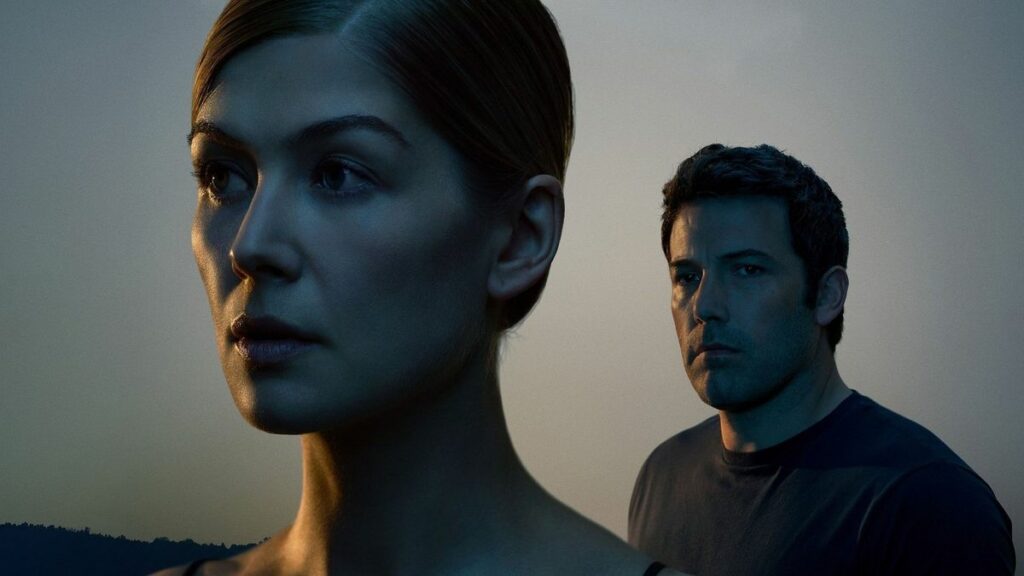
Spoiler-free zone:
Rosamund Pike and Ben Affleck play seemingly perfect couple Amy and Nick. They have their problems, but they appear to be happily married, at least on the surface. When Amy vanishes without a trace, Nick finds himself as the prime suspect, as details of their troubled relationship emerge while the investigation deepens. Did Nick actually do it? Is he being elaborately framed? And if Amy is dead, where is her body?
Spoiler zone:
A friend once told me that Gone Girl made him take a break from dating women, at least for a while. As ridiculous as that sounds, the film really is a nightmarish scenario for men who are bad husbands. Midway through Gone Girl it is revealed that Amy is not only alive, but that she’s responsible for her own disappearance. Amy faked her death and was trying to frame Nick for her murder because of his failures as a husband. Brutal, right? But let’s not pretend that the abusive, unfaithful Nick is innocent. Gone Girl proves that hell really hath no fury like a woman scorned.
5. Shutter Island
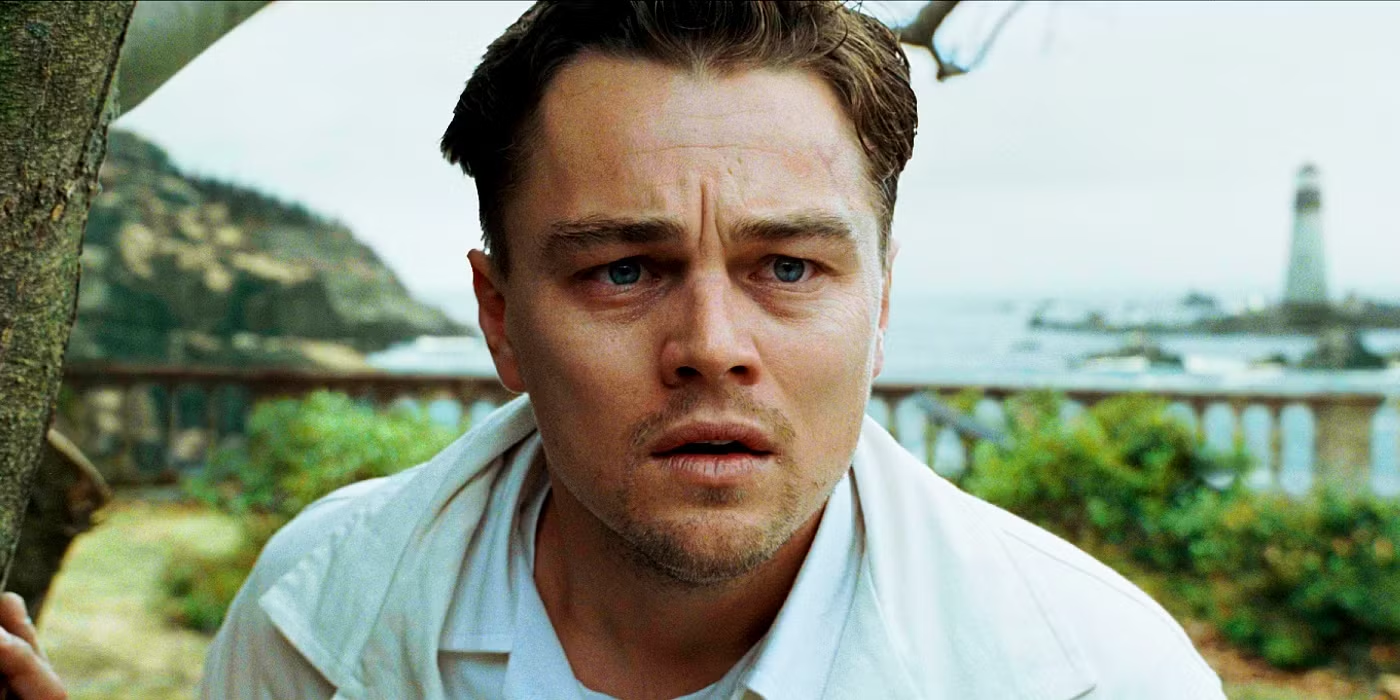
Spoiler-free zone:
The beginning of Shutter Island sets the stage for an intriguing noir premise that slowly unravels as the film progresses. Leonardo DiCaprio’s Edward ‘Teddy’ Daniels is a US marshal investigating the disappearance of a woman from a facility for the mentally disturbed and insane on the titular island. He is joined by his partner, Mark Ruffalo’s Chuck Aule, and right from the start, something clearly isn’t right. Doctors, orderlies and security at the facility aren’t too keen on the Marshals’ visit and at times they even actively hamper their investigation.
Daniels, who has his own motivations for the investigation as he believes his wife’s murderer is being kept at the facility, begins having troubling dreams and crippling migraines as he – and we as the audience – start to believe that there are forces at work trying to prevent him from ever leaving the island and spreading word of what really goes on there.
Spoiler zone:
Daniels was right, there were forces that didn’t want him leaving the island, but not for the reasons he suspected. In the film’s closing stages, Daniels’ partner Chuck is supposedly killed as Daniels’ descent into madness quickens its pace. He plans a last-ditch effort to unveil the islands’ secrets by storming a lighthouse where he believes lobotomies are being performed on patients. He is successful in infiltrating the lighthouse, where he finds senior psychiatrist Dr. John Cawley, who informs Daniels that he is not a US marshal, but an inmate at the facility.
While originally hesitant to believe Dr. Cawley, Daniels slowly realises that what he says is true. He was committed to the facility after murdering his wife, and the events of the entire film have actually been an elaborate experiment conducted by the island’s staff in an attempt to play into Daniels’ dissociative fantasy and finally remedy his condition. What’s more, Chuck reappears and reveals that he’s not only alive, but that he too is a doctor at the facility and attached himself to Daniels so he could monitor him during the experiment.
4. The Sixth Sense
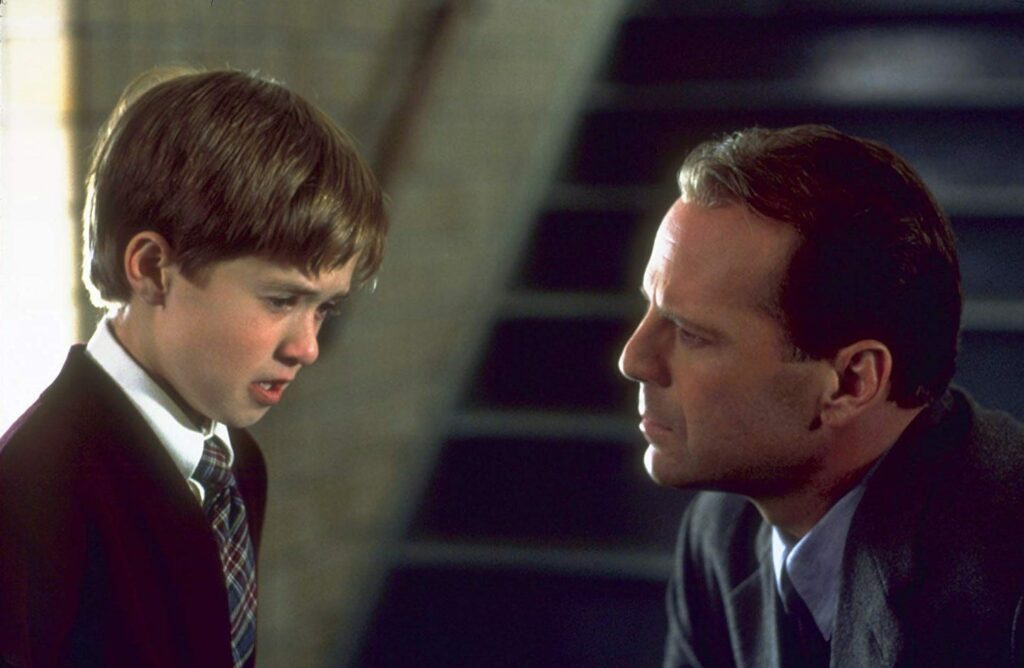
Spoiler-free zone:
The film that launched M. Night Shyamalan’s reputation as the king of plot twists, The Sixth Sense follows a boy (Cole) who can see ghosts, and the child psychologist (Malcolm) who comes to his aid. That’s about as much as we can tell you without spoiling this famous twist.
Spoiler zone:
Cole says he can see dead people and he can, including his psychologist. Malcolm discovers that he too is a ghost and that throughout his time with Cole, he has really been dead as a result of a gunshot wound he sustained months earlier.
3. Planet of the Apes
Spoiler-free zone:
A seminal work in the development of plot twists is the original Planet of the Apes. In the film, a trio of astronauts crash land on a mysterious planet after being kept in deep hibernation for more than 2,000 years. As the title implies, apes rule this planet and they quickly capture and kill two of the three astronauts, leaving only commander George Taylor alive. Taylor spends the rest of the film attempting to escape captivity and eventually does so, only to make a harrowing discovery.
Spoiler zone:
In the film’s final scene, Taylor and Nova – a woman he rescued during his travels – are travelling along a shoreline on horseback and stumble across the remnants of the statue of liberty, revealing that the film isn’t set on some far-off planet and that this futuristic land of apes is really Earth.
2. Fight Club
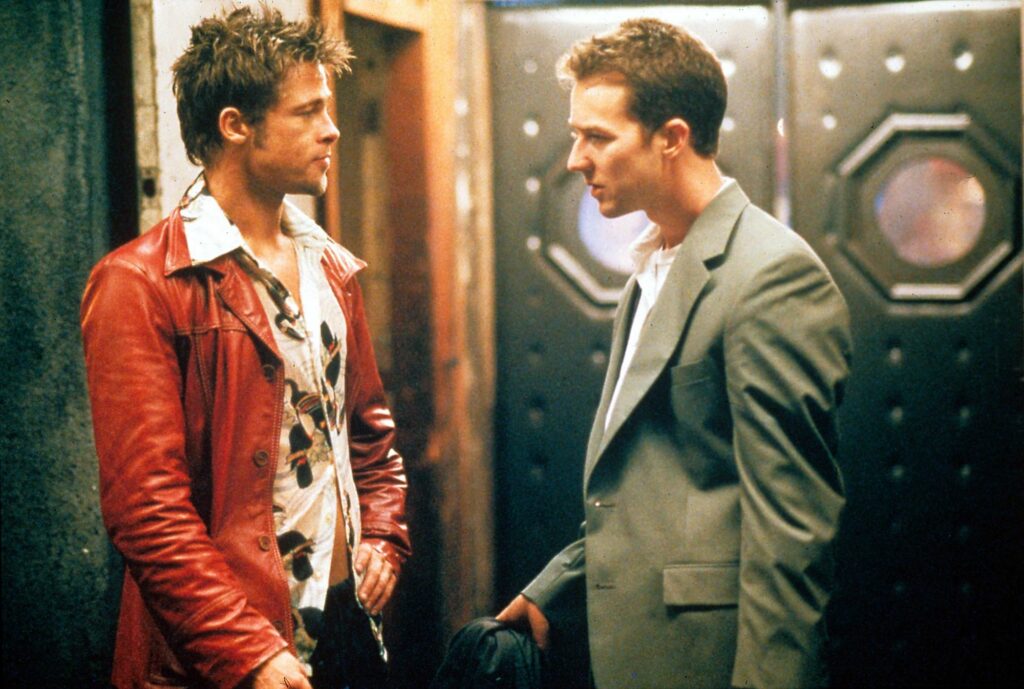
Spoiler-free zone:
This spoiler hardly needs a spoiler-free introduction, as it’s one of the most well-known plot twists of all time, but we’ll provide one anyway. In Fight Club, Edward Norton’s unnamed narrator is a 30-something man who is growing increasingly dissatisfied with his menial job, struggling with insomnia and has resorted to infiltrating support groups under false pretences to ease his own plight. He then meets Tyler Durden, an enigmatic soap salesman who offers him a different perspective on life. The pair start an underground fight club which gradually grows in size and scope, as the group starts engaging in industrial sabotage and vandalism. The twist hits right as the narrator’s fight club turns into Project Mayhem and heightens its destructive aims.
Spoiler zone:
There is no Tyler Durden. The narrator has multiple personality disorder and, in a mental break, has invented Durden as the ideal version of himself. Everything the narrator witnessed Durden do throughout the film was actually just the narrator himself. Buildings explode, a guitar riff plays and minds are blown.
1. Star Wars: The Empire Strikes Back
Spoiler-free zone:
If you aren’t aware of this plot twist, hats off to you, because you must’ve mastered the art of complete social and cultural isolation. The Empire Strikes Back’s plot twist birthed one of the most frequently quoted lines in cinematic history. So well known is this twist that we consider it almost impossible to be shocked by it on a first-time viewing, because you will almost definitely already know the twist, such is its renown. In the extremely unlikely event that you have no idea what we’re talking about, here’s a brief backgrounder.
In the original Star Wars film, A New Hope, we learn that our protagonist Luke Skywalker doesn’t know too much about the identity of his father. His aunt and uncle, with whom he lives, tell him that dear old dad was a simple navigator on a spice freighter. When Luke crosses paths with Jedi-in-hiding Ben Kenobi, the hermit offers another story: that Luke’s father was also a Jedi, one who was slain by the villainous Darth Vader. The audience accepts this story as the truth, giving Luke further motivation to join the rebellion and avenge his father’s death. Which leads us to The Empire Strikes Back, where Luke and Vader finally cross paths.
Spoiler zone:
This twist hardly needs recounting, but here we go: after their fateful duel in Cloud City, Vader implores Luke to join forces with him. In an attempt at persuasion, Vader asserts that “Obi-Wan never told you what happened to your father.” Luke replies that he knows Vader killed his father, to which Vader responds, “No, I am your father.” Jaw dropping. Earth shattering. Franchise flipping. Vader’s admission sent shockwaves around the movie-going world and is still frequently (mis)quoted to this day, as the line “Luke, I am your father” has entered the cultural vernacular. Other twists may have been more shocking, but none have been as impactful or memorable as the franchise-defining moment in the sequel to what was, at the time, the highest grossing film ever.
Related:
‘Gladiator II’ review: I was entertained, but not much else
The best TV series, movies and documentaries to stream in November












